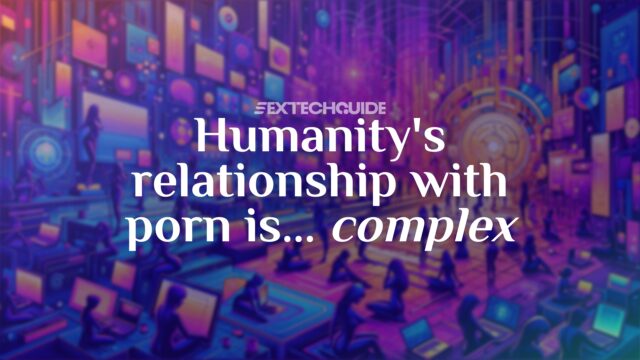Do you swipe according to your political view? If the answer is a resounding yes, could your political pickiness be a factor in the polarization we’re seeing between the so-called left and right across the globe… or even preventing your chances at a successful relationship?
It’s a sweeping statement to make, but one that psychologists have put forward in response to new research from Brazil that suggest that dating apps are contributing to the polarization of politics, particularly in Western societies that are becoming increasingly divisive politically.
The implications of this research from the University of São Paulo could mean that by disregarding anyone you think you don’t agree with on politically (based on their dating app profile information), you’re preventing your chances at a potentially well-matched relationship, with dating app culture adding to the dichotomous, swipe-left-swipe-right culture that highlights our differences over our similarities.
‘Swipe opposite to your political view’
Seeing political views as you’re swiping – from #NoTories to #MAGA to ‘Swipe opposite to your political view’ – is becoming increasingly commonplace on dating apps. Female-first dating app Bumble even has a political values filter, so you can easily assert your political position at the point of creating your profile.
But while you might think this could be reducing your chances of clashes over current affairs with your other half in the future, psychologists believe some of these pre-conceived ideological stances may be restricting people’s sex lives, or even chances at a successful relationship.
Spotlight on Brazil
Today in Brazil, politics is influencing people’s sex lives amid the political polarization that divides the country. The main divide is between supporters of the left-wing, former president Luiz Inácio Lula da Silva, of the Workers’ Party (PT), and current far-right president Jair Bolsonaro.
In September 2020, the Public Policy Group for Access to Information at the University of São Paulo (USP) published a paper investigating the presence of political identifiers on dating app profiles – such as political hashtags in support for politicians or political ideologies – coming to some interesting conclusions.
The research looked at 48,000 Tinder profiles geolocated in São Paulo neighborhoods, factoring in social class and age groups differences, looking at how people identify politically on their dating app profile.
They found that left-leaning people displayed their political values much more frequently than other users. Left political identity markers were five times more frequent than those of the right (even in the São Paulo neighbourhood that the far-right leader Bolsonaro received the highest votes in a 2018 election).
Could this mean that, as the left are presenting their political views significantly more than others, we could infer that they’re more intolerant when it comes to the search for a partner?
‘Rejecting in advance’
Pablo Ortellado, professor of Public Policy at USP and one of the researchers behind the study, notes that there is a historical tendency for individuals to associate and bond with other similar individuals.
“It is nothing new that couples form between partners with close proximity of political positions. This has been noticed for a long time, and it doesn’t just concern politics — it happens with religion as well. But what we are seeing is something else, people are now rejecting in advance, with very explicit marks and warnings, any contact with people who adopt adversarial identities. They don’t even want to meet them,” Ortellado comments.
Ortellado and his team also found that there was a greater rejection by female users to match with ideologically-different partners — previous research has found that women are more selective on dating apps. The study also showed a greater presence of politicized profiles in central neighbourhoods, where 1 in 15 users make clear their ideological position on Tinder. However, this figure might be higher.
Ortellado adds: “The traces we found of ideological views (1 in every 15 profiles) surely is an underestimated estimate of the phenomenon, because we didn’t measure the non-explicit signs – such as photos that indirectly indicate a certain political orientation – and we also didn’t measure the unwillingness to relate that is not registered in the profile but that is communicated right after the first contact.”
He adds that “the refusal to relate to people from another political camp is a sad sign of the division and intolerance we see in society”.
“This means that we have fewer potential sexual partners, which leads to a reduction of relationship possibilities, but it also leads to an impoverishment of our personal worldviews, which become singular, one-sided, and intolerant,” Ortellado concludes.
Facebook dating groups for party supporters
The research is backed up by divisive Facebook groups that match people based on their political view. In 2019, activists linked to the Worker’s Party (PT) created a Facebook group with over 30,000 people called PTinder to promote relationships only among people identified with the party. A much smaller one for supporters of Bolsonaro, Bolsolteiros, was also created not long after.
Psychoanalyst and clinical psychologist Marcelo Checchia told SEXTECHGUIDE there is an authoritarian component to only wanting to hang out with those who are ideologically in the same camp as them.
He added: “The social media bubbles came about because there were already bubbles in real life, but the virtual bubbles are radically reinforcing the ones that already existed in reality, which has generated more and more intolerance from all sides. With sexual life and subjectivity impoverished by the lack of experience with differences, there will certainly be consequences in the collective, the most obvious being the growth of intolerance.”
Psychologist Mariana Braga tells SEXTECHGUIDE we are not seeing social network bubbles, but a characteristic of a new generation which lives “addicted to apps and cell phones and selects what it wants.”
For her, young people have become used to saying ‘I didn’t like it’, ‘I like it,’ ‘I didn’t like it’, very clearly and “this is how this generation relates to the world now.” Braga further predicts that with the social isolation brought on by the pandemic, Generation Z will be hugely impacted.
“The difference in the historical moment of this generation is the intensity of the changes brought about by the digital revolution, which have further intensified theconflicts between the generations,” says Checchia.
Experts agree that what we’re seeing is a generational change that is hugely dependent on the internet and, especially in Brazil, immensely influenced by the polarizing political scenario, on top of a pandemic whose consequences for people’s sexual lives are yet to be seen in full.
Read Next: TikTok: A boost for amateur content or the next platform to #cancelporn?





Leave a Reply